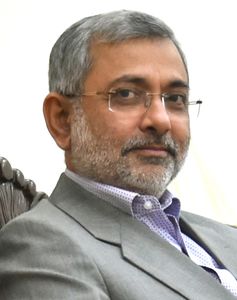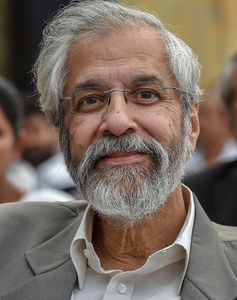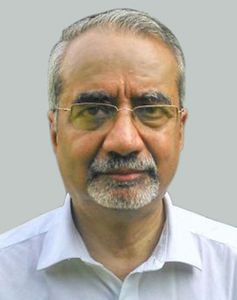“WE HAVE DISCHARGED our debt to the nation,” declared four senior judges of the Supreme Court on January 12, 2018. Ranjan Gogoi was among this rebellious four who held an unprecedented press conference to air their grievances against the manner in which Dipak Misra, then chief justice of India, was managing the apex court. They said they were forced to speak out because the independence of the judiciary was under threat.
The media had asked the foursome if they were aggrieved at the allocation of the case related to Justice B.H. Loya’s death to a particular bench. Three of the judges remained tight-lipped. It was Gogoi who confirmed it was so. He came across as the boldest of the four judges, as he was next in line to become CJI.
Ironically, Gogoi is now at the centre of a controversy over the Narendra Modi government’s decision to nominate him to the Rajya Sabha. The move has been widely described as an assault on the independence of the judiciary. Critics point out that Gogoi, as CJI and master of the roster till last November, was allocating cases that were crucial to the government. He also adjudicated on matters that had deep political significance.
The brother judges who were with him at the historic press conference expressed disappointment at Gogoi’s decision to enter the Rajya Sabha. Justice (retd) Kurian Joseph said he was surprised at how Gogoi, “who once exhibited such courage of conviction to uphold the independence of the judiciary, has compromised the noble principles of the independence and impartiality of the judiciary”.
“Our great nation continues to be firmly grounded on the basic structures and constitutional values, thanks mainly to the independent judiciary,” said Joseph. “The moment this confidence of the people is shaken, the moment there is a perception that a section among the judges is otherwise biased or looking forward, the tectonic alignment of the nation built on solid foundations is shaken.”
Justice (retd) Madan Lokur, who was also part of the press conference, said he would first like to hear Gogoi explain why he accepted the nomination. “[Before responding] I would like to wait for Justice Gogoi to make a statement on this,” he said. Lokur had initially said that Gogoi’s move redefined the independence, impartiality and integrity of the judiciary. He had also wondered whether the “last bastion” had fallen.
Some critics have said that the nomination reeks of “quid pro quo”, because Gogoi had adjudicated on politically significant matters. His nomination to the upper house has also been contrasted with the midnight transfer of Justice S. Muralidhar of the Delhi High Court, who was hearing petitions related to the Delhi communal riots in February.
A.P. Shah, former chief justice of the Delhi High Court, said Gogoi’s nomination sends a message that if one gives judgments that are favourable to the executive, he or she would be rewarded. And if you do not do it, said Shah, you would be punished through transfers or your career growth will be hampered. “It is a death knell for the separation of powers and the independence of the judiciary,” he said.
Bishwajit Bhattacharyya, senior advocate and former additional solicitor general, said Gogoi’s statement that the legislature and the judiciary must work together was an affront to the doctrine of separation of powers. “He delivered several politically sensitive verdicts, perceived to be in favour of the executive, as the presiding CJI till November 2019,” said Bhattacharyya. “That Gogoi so quickly and joyfully accepted an offer from the executive shakes the faith of the common man in the independence, integrity and impartiality of the judiciary. The credibility of the judiciary is irreparably damaged.”
Critics are questioning the very rationale of nominating a former judge to the Rajya Sabha. “It is my firm belief that no chief justice of India should accept a nomination to the Rajya Sabha or even contest elections to the upper house,” said former Supreme Court judge A.K. Patnaik. “A person has to decide on whether he wants to be a politician and be in Parliament or whether he wants to join the judiciary. You cannot have both.”
Judges accepting post-retirement benefits has been a hotly debated issue. There have been instances of judges making it clear that they would not accept appointments after retiring. Article 124(7) of the Constitution says, “No person who has held office as a judge of the Supreme Court shall plead or act in any court or before any authority within the territory of India.”
The First Law Commission, chaired by eminent jurist M.C. Setalvad, had in its 14th report dealt with the question of Supreme Court judges taking up employment under the state or the Union after retirement. The report said it was necessary to safeguard the independence of Supreme Court judges by enacting a law barring them from further employment, except as ad hoc judges of the Supreme Court.
“It is absolutely not correct,” said Vikas Singh, senior advocate and former additional solicitor general. “It smacks of quid pro quo. There can be no justification for sending judges to the Rajya Sabha since these are political appointments. There should be a ban on it.”
As Gogoi makes a shift from the judiciary to the legislative, the political ramifications of the move are unmistakable. Gogoi’s legacy as the CJI was already being viewed as contentious. Questions have been raised about the politically significant judgments under his tenure as CJI—most prominent among them on the Ayodhya dispute. A five-judge Constitution bench headed by Gogoi had undertaken a 40-day, nonstop hearing on the matter, before passing a unanimous verdict in favour of building a temple on the disputed site. Among the string of judgments before Gogoi retired was the dismissal of the politically significant petition related to the acquisition of Rafale fighter jets from France. The court ruled that there was no need to register a first information report based on the allegations of corruption in the deal.
Apart from the crucial judgments, there was also criticism that Gogoi’s court had not fast-tracked certain crucial matters, such as the petitions challenging the voiding of Article 370 and the pleas demanding the court to decide on the constitutionality of the electoral bonds scheme.
Congress leader Abhishek Manu Singhvi said sending Gogoi to the Rajya Sabha strengthens the perception that the judiciary is “not able to stand up with its usual vigour and fearlessness against executive and legislative assault”. “Pre-retirement judgments are influenced by a desire for a post-retirement job,” he said. “For two years after retirement, there should be a gap before appointment because otherwise the government can directly or indirectly influence the courts and the dream to have an independent, fair and impartial judiciary in the country would never actualise.”
For its part, the BJP has defended Gogoi’s nomination by citing precedents, including that of former CJI Ranganath Misra and former Supreme Court judge Baharul Islam, both of whom were elected to the Rajya Sabha. But these examples are problematic since it was alleged that their entry to the upper house had to do with their judgments which were favourable to the Congress governments of the past.
K.G. Balakrishnan, former chief justice of India, struck a different note on the controversy, saying there was a tradition of the president nominating people from the legal fraternity to the Rajya Sabha. “Fali Nariman was a member of the Rajya Sabha,” he said. “Thereafter, K.T.S. Tulsi was nominated. Now, they are saying that Justice Gogoi would be the most suitable candidate. It is up to him to accept it or not.”
There is, however, a strong feeling that Gogoi did not live up to expectations as chief justice of India, especially since he was one of the four rebel judges who spoke out against the alleged efforts to undermine the judiciary. While the appointment of judges did pick up during Gogoi’s term, it is felt that the Supreme Court collegium that he led gave in to government pressure in certain cases. Many people have pointed out that Gogoi had also failed to streamline the allocation of cases, which had been the primary reason for the 2018 press conference.
The biggest blot on his reputation, however, has been the allegation that he sexually harassed a junior court assistant and then misused his power to silence the victim and her family. Even though he was acquitted by a three judge-bench headed by S.A. Bobde, the current chief justice, the manner in which the case was dealt by the Supreme Court was criticised.
“Bitter truths must remain in memory,” Gogoi had said in his farewell speech as the CJI. For many people, bitterness is what he leaves behind in the judiciary as he prepares to cross over to the legislative.
GOGOI’S BIG VERDICTS
Ayodhya judgment
A bench led by Ranjan Gogoi decreed that the disputed land belonged to the deity Ram Lalla. It directed the government to allot an alternative plot in Ayodhya for the construction of a mosque
Rafale review
A bench headed by Gogoi gave a clean chit to the Union government over allegations of irregularities in the procurement of 36 Rafale jets from France
NRC
Gogoi was part of a bench that directed the implementation of the National Register of Citizens in Assam





